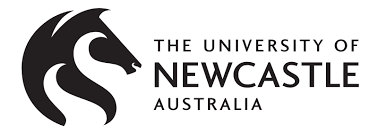Reporting and adaptive management
The NSW Forest Monitoring Steering Committee, independently chaired by the Commission, will review the Coastal IFOA and the monitoring program annually.
The annual reviews will consider the results of the monitoring program and identify key insights and implications based on the findings of the monitoring data. This will guide the recommendations made to the NSW Government, the NSW Environment Protection Authority (EPA) and the NSW Department of Primary Industries (DPI) on how the Coastal IFOA could better meet its objectives and outcomes.
The Steering Committee will also engage stakeholders on progress and results at annual forums.
2024 Webinar series: Forest monitoring using LiDAR
 |
 |
 |
- Webinar (presentation) - Forest monitoring using LiDAR (November 2024)
- Webinar (Video) - Forest monitoring using LiDAR (November 2024)
- Webinar (Q and A) - Forest monitoring using LiDAR
On 15 November 2024, we held a webinar to present recent research analysing changes in forest structure in NSW state forests using LiDAR data.
This work provides insights into the dynamics of forest structure, composition, and regeneration following harvesting events in NSW State Forests. By integrating LiDAR with other spatial data and employing various analytical methods, this research offers a multifaceted understanding of forest ecosystems.
Professor Scott Brown and his team from the University of Newcastle presented the findings from this research and the interactive web maps developed.
Following the presentation, the following experts joined Professor Brown for a Q&A panel session:
- Mr Peter Cochrane (Assistant Commissioner, Natural Resources Commission and Chair of the NSW Forest Monitoring Steering Committee)
- Professor Patrick Baker (Professor of Silviculture and Forest Ecology, University of Melbourne)
- Dr Sam Hislop (Land Sector Carbon Analyst, FlintPro).
First five-yearly review of monitoring program
Under Coastal IFOA Protocol 38, the monitoring program must undergo a major review every five years, the first of which is due in 2024. This review must include:
- detailed reporting of monitoring program progress and all results
- detailed analysis of trends
- an assessment of the adequacy of the monitoring program.
We, on behalf of the Steering Committee, are working to address these review requirements. In addition, First Person Consulting is conducting an independent review of the adequacy of the program, and the Steering Committee is seeking the views of interested stakeholders.
The outcomes of the review will inform future adaptation and improvements to the monitoring program.
Reporting
- Annual progress report (October 2024)
- Annual progress report (August 2023)
- Annual progress report (July 2022)
- Annual progress report (May 2021)
We, on behalf of the Steering Committee, produce annual progress reports for the Coastal IFOA monitoring program. The program reports to the Minister for Agriculture, Minister for the Environment, Environment Protection Authority and the Department of Primary Industries.
We have published the fourth annual progress report outlining program achievements and progress for 2023-24. The program has delivered new research and evaluations on hollow bearing trees, forest regeneration and field surveys and modelling used for the Coastal IFOA. The program continues to collect fauna data for trend monitoring. Remote sensors have now collected over 624,000 hours survey hours on state forest, equivalent to 40 years using traditional survey methods. In addition, the report explains new plans to monitor greater gliders and koalas and pilot to trial the use of eDNA to detect the Giant Burrowing Frog.
Adaptive management
Project A1: Annual Coastal IFOA health checks
Project A1: Annual Coastal IFOA health checks
Under the Coastal IFOA, the Steering Committee must undertake an annual ‘health check’ (see Coastal IFOA, Protocol 38). The annual health check is designed to consider the results of the monitoring program and identify new research priorities to improve forest management outcomes.
Since 2021, we have hosted three health checks with representatives from the EPA, DPI and FCNSW. We report outcomes to the steering committee annually before reporting outcomes to the EPA CEO and DPI Director General and relevant Ministers.
2021 health check
Parties agreed to initiate two new research projects to address knowledge gaps:
- review the use of temporary log crossings on coastal state forests
- analyse existing field data to support further hollow modelling.
Since the health check, the program commissioned scientists at:
- Jacobs to evaluate the effectiveness of temporary log crossings
- Australian National University to improve hollow simulation modelling on state forests
More information on the 2021 health check can be found in the Coastal IFOA monitoring annual report (2022).
2022 health check
Parties agreed to initiate new research to address knowledge gaps and uncertainties in the application and interpretation of the Coastal IFOA definition of damage to trees.
Since the health check, the program commissioned researchers at Western Sydney University to develop an evidence base to objectively assess the impact of injuries to retained trees during forestry operations.
As a next step, the program will initiate further work to set objective injury thresholds for different types of injuries for retained trees as codified under the Coastal IFOA.
More information on the 2022 health check can be found in the Coastal IFOA monitoring annual report (2023).
2023 health check
No new research was identified. Instead, parties noted the program will deliver its five yearly-review of evidence in 2024 to inform the Coastal IFOA review.
Project A2: Annual species management plan reviews
Project A2: Annual species management plan reviews
Annual reviews of Species Management Plans (SMPs) will be overseen by the Commission with the Forestry Corporation of NSW (FCNSW) and the EPA. FNCSW must establish SMPs for the Coastal IFOA for specific flora and fauna and include annual reporting provisions (see Condition 84 and Protocol 21). The EPA approves amendments to the SMPs.
SMP reviews and updates can be found here.
